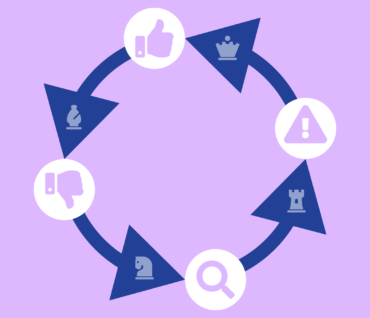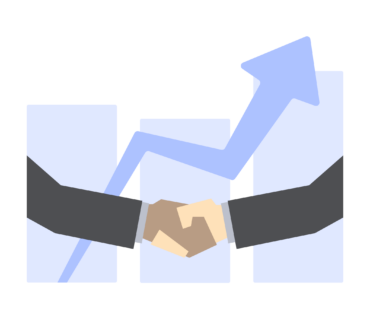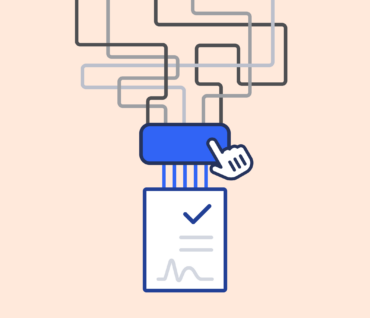What You Should Know Before Diving into an ERP Transition
Here’s how to implement a new ERP system without disrupting important daily business functions.
Are you realizing that your current Enterprise Resource Planning (ERP) system can’t keep up with business growth? Worried how migrating to a new system could impact your daily business operations?
Transitioning from one ERP system to another can be a headache, sometimes taking years to fully integrate.
According to Forbes, 95% of businesses report an improvement in business processes after implementing an ERP system. Yet, 75% of ERP migrations fail, according to global consultancy firm, McKinsey.
Why? These large projects often get out of hand and go over budget, resulting in negative returns.
Here’s how to navigate your successful ERP implementation journey (while avoiding dangerous pitfalls).
What Is an ERP Implementation?
An ERP system serves as a central hub that brings together information and processes across different business units, from finance and human resources, to supply chain management. An ERP implementation is the process of installing ERP software system within an organization. Although implementation can be complex and time-consuming, it can mean improved data accuracy and a boost in productivity and cost savings.
Don’t Underestimate the Scope of Your ERP Implementation Project
Many businesses underestimate how large the ERP implementation project will actually be. When scoping out your data migration plan, consider how many key stakeholders will be involved and the amount of culture and process change that will be required. It may be more than you think.
Don’t start your next ERP implementation without adequate planning and resource allocation. Preparation for changing the company culture must happen long before the transition takes place.
Evaluate the state of your company and culture–is your business in a place where it can handle substantial change? If not, the time may not be right to invest in an ERP solution. Hold off until your business feels more ready.
How Clean Is Your Data?
In basic terms, an ERP system is a mechanism for allowing different sets of master data to relate to each other. However, it loses all usefulness if the quality of your master data is low. If you only discover that your existing data quality is low as you transition to a new ERP, you may already be too late. Inaccurate data can complicate, lengthen, and even crash the transition process.
So before you decide to move to a new ERP system, dive into the quality of your data. We all know the importance of data accuracy, but keeping track of the quality can be way more difficult than we realize. Be sure to look very closely at your data and monitor it relentlessly.
Data will never be perfect. But ERPs lose their usefulness if the data they manage isn’t reliable or truthful. So don’t underestimate the importance of putting in the hard work to improve your data integrity.
When you’re confident that you’re working with clean, high-quality master data, transitioning to a new ERP system will be much smoother and quicker.
Know Your Role in the ERP Implementation Process
Sure, maybe you just bought the best ERP system in the world. But if you aren’t prepared to do the work, that system will get you nowhere. The ERP is simply a tool, not a solution.
The new ERP system won’t solve your problems by itself. First, you must set up the company culture to understand the importance of the transition, and then be ready to support it. Secondly, you need to understand down to the tiniest details what will be required to make the transition actually happen. ?And third, you have to evaluate the strength and accuracy of your data, in ALL the different places that data lives, and clean up discrepancies before you begin the implementation process.
Change Key Business Processes Gradually
Another common pitfall that businesses fall into is making the ERP transition an opportunity to overhaul processes as well. While some, maybe even all processes will inevitably need to change, this shift has to be steady and incremental.
Evaluate your current processes. Take stock of what’s working and what isn’t, and change the most essential processes first. Patience is key when making that shift. If you try to force a change too soon, you may find it either takes far too long and disrupts business, or your employees end up tired and burned out.
So be careful when overhauling processes. Prioritize the biggest pieces of the implementation and continually iterate your processes from there.
Achieve ERP Implementation Success
Implementing an ERP solution can make or break your business–especially as it scales. Making that transition early and smoothly might be the best thing you ever do.
Put in the work yourself, get your best people on the implementation project team, and ensure your project’s success. It’s definitely not something you want to do halfway. An ERP implementation plan is an all-or-nothing effort.
Looking to improve your procurement processes and data accuracy? Graphite can help you sync effortlessly with whichever ERP systems you choose.
Graphite solutions enables you to streamline your procurement processes while making sure that your supplier data is always up-to-date and accurate. Easily customize your supplier intake process and centralize where your supplier data is stored to simplify operations and protect your company against risk.



